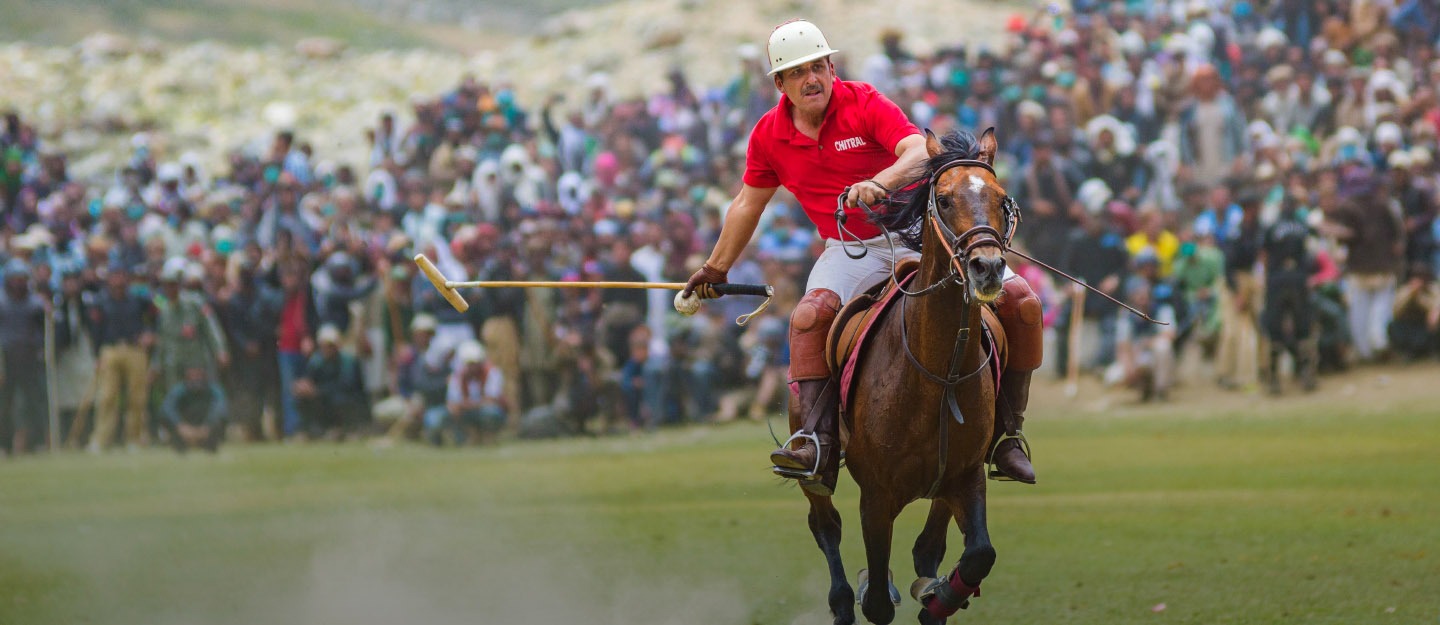In the heart of the spectacular Gilgit-Baltistan region, where majestic peaks kiss the sky and pristine lakes reflect the beauty of the Karakoram Range, there exists a fervor that transcends the breathtaking landscapes. It’s the craze for Polo, a sport that has woven itself into the cultural fabric of Gilgit-Baltistan, captivating the hearts of locals and visitors alike.
Historical Roots: Polo, often referred to as the “Sport of Kings,” has found a special place in the hearts of the people of Gilgit-Baltistan. In this high-altitude region, where the air is crisp and the mountains are monumental, Polo is more than just a game—it’s a way of life. The sport’s roots run deep in the history and traditions of the region.
Historically, Polo in Gilgit-Baltistan was not merely a sporting pursuit but a demonstration of equestrian prowess by warriors. Played during royal celebrations and gatherings, it became a spectacle that showcased both skill and valor. The game, thus, became intertwined with the cultural identity of the region, a tradition passed down through generations.
Spectacular Polo Grounds: The backdrop for Polo matches in Gilgit-Baltistan is nothing short of spectacular. Surrounded by towering peaks and with the sky as the only limit, the region’s polo grounds provide a unique and breathtaking setting for the sport. The Shandur Polo Ground, often called the “Roof of the World,” is one such venue where an annual polo festival attracts enthusiasts from far and wide.
Cultural Fusion on Horseback: Polo in Gilgit-Baltistan is not just about the game; it’s a celebration of culture and camaraderie. The players, adorned in traditional attire, display a unique fusion of skill and style. The rhythmic sound of hooves, the clash of mallets, and the cheers of the crowd create an electrifying atmosphere, blending sporting prowess with cultural pride.
The Shandur Polo Festival: One of the most significant events in the Gilgit-Baltistan Polo calendar is the Shandur Polo Festival. Held at the highest polo ground in the world, this festival attracts teams from different regions to compete in a spirited tournament. Beyond the matches, the festival features traditional music, dance, and local delicacies, making it a holistic celebration of the region’s heritage.
Passion Passed Down Generations: Polo is not just a sport in Gilgit-Baltistan; it’s a tradition passed down through generations. Youngsters are introduced to the game early on, learning the intricacies of horse riding and mallet control. The sport becomes a way for families to bond and for communities to come together in shared enthusiasm.
Preserving Cultural Identity: The craze for Polo in Gilgit-Baltistan is more than a sporting trend; it’s a means of preserving cultural identity. As the region undergoes modernization, Polo serves as a bridge between the past and the present, ensuring that the customs and values of the people endure through this exhilarating sport.
Conclusion: In the high-altitude realm of Gilgit-Baltistan, Polo is not just a game played on horseback; it’s an expression of heritage, passion, and cultural pride. As the thunderous hoofbeats echo against the majestic mountains, Polo stands as a testament to the enduring spirit of a region where tradition and modernity harmoniously coexist. The Polo legacy of Gilgit-Baltistan is an invitation to witness the convergence of sport, culture, and natural beauty in a setting unlike any other.



0 Comment